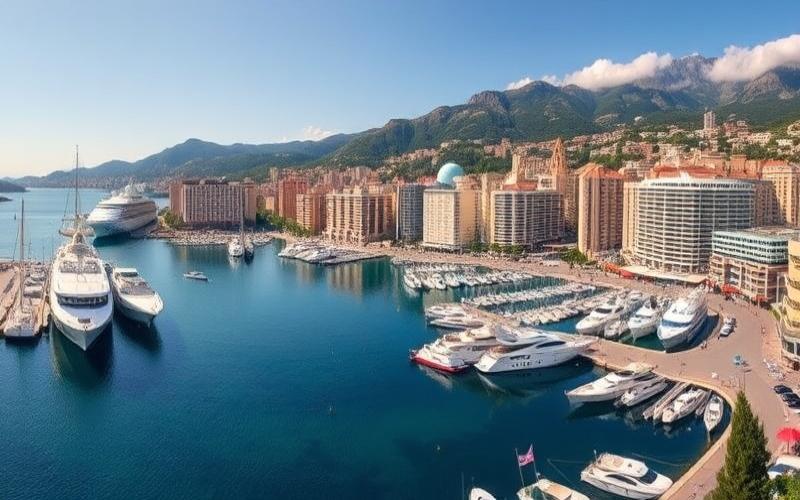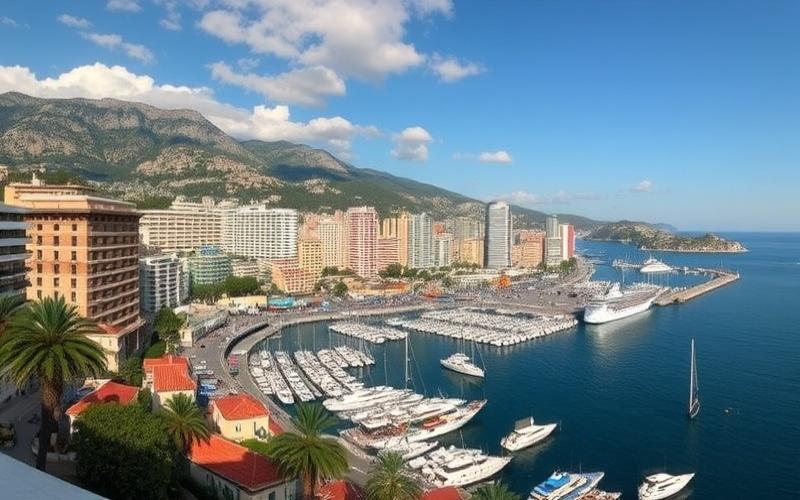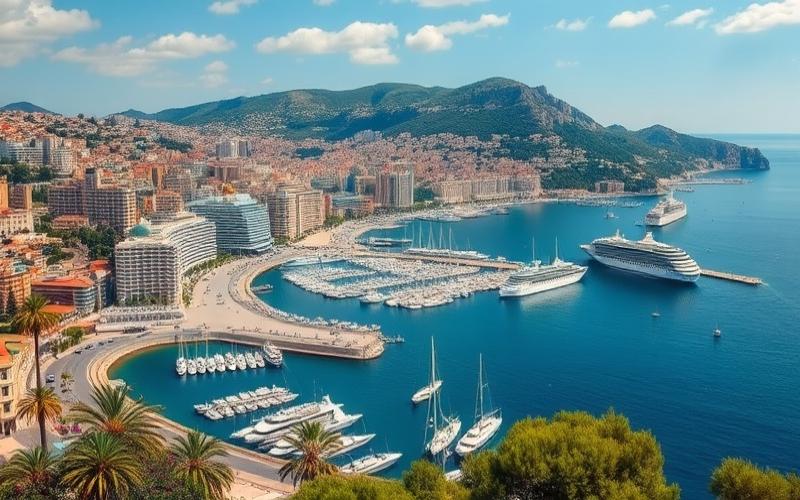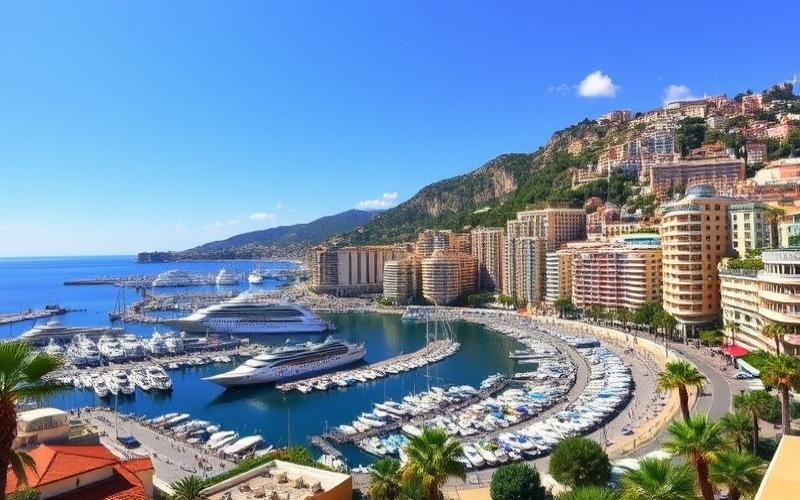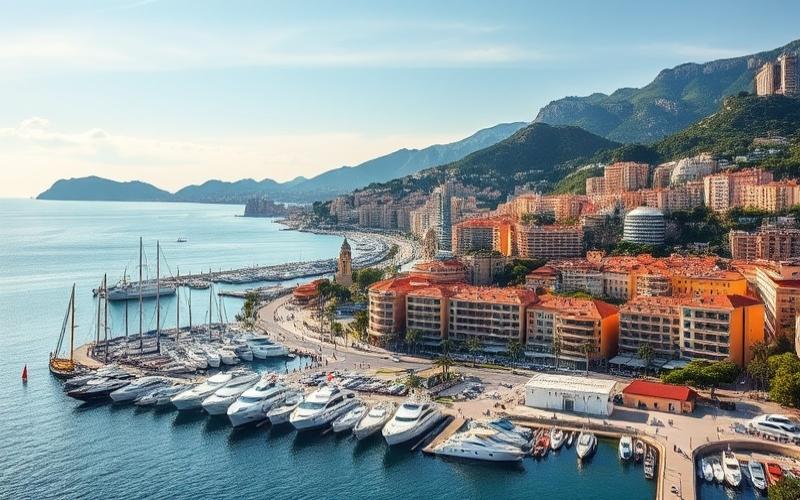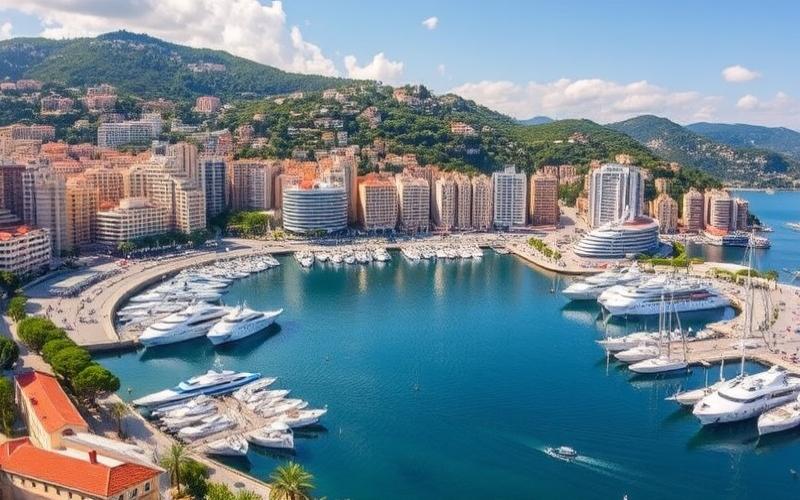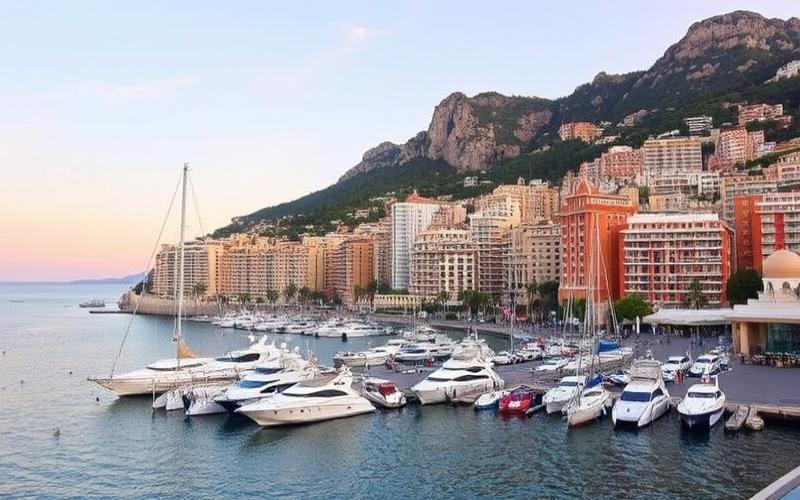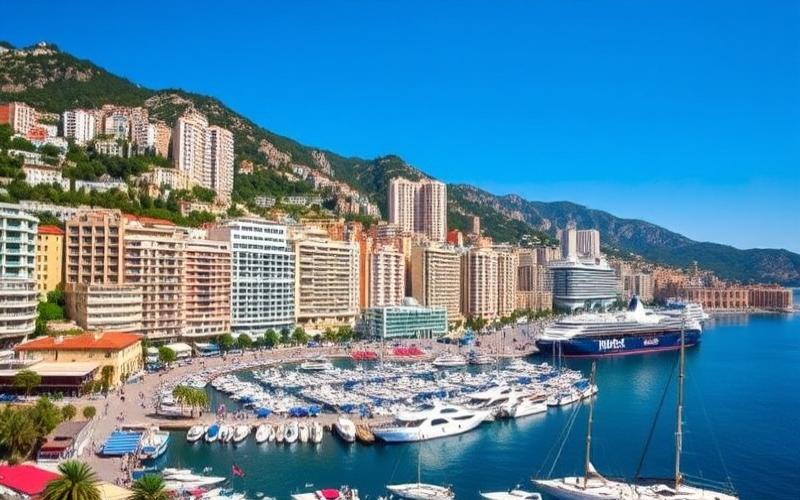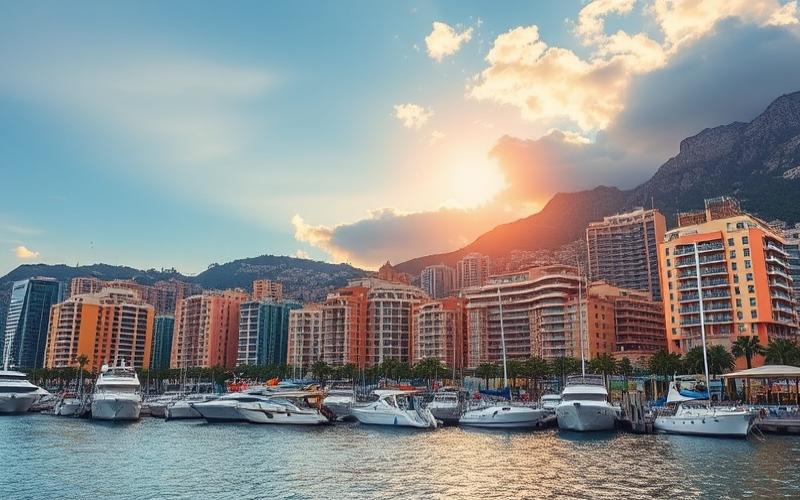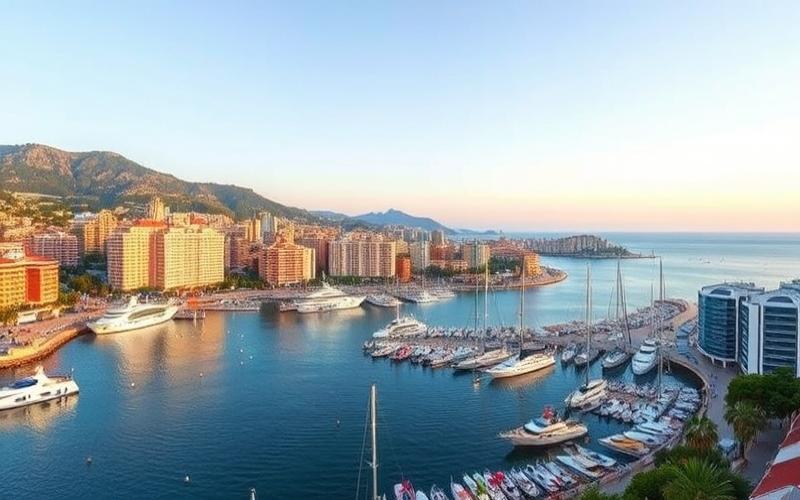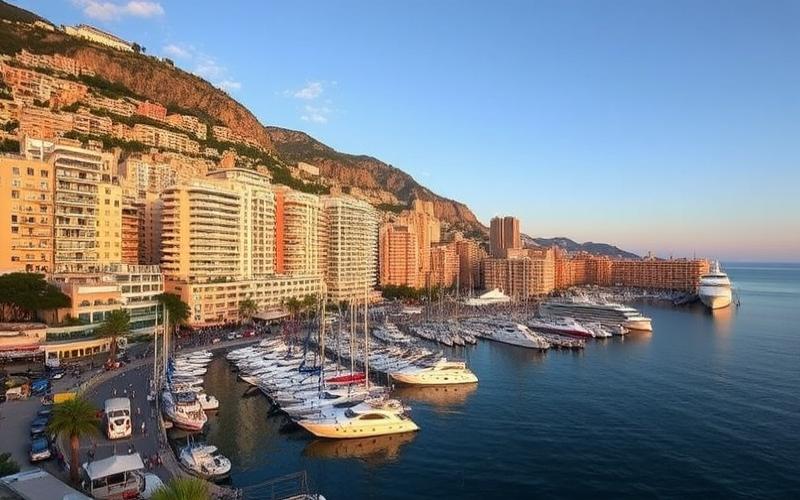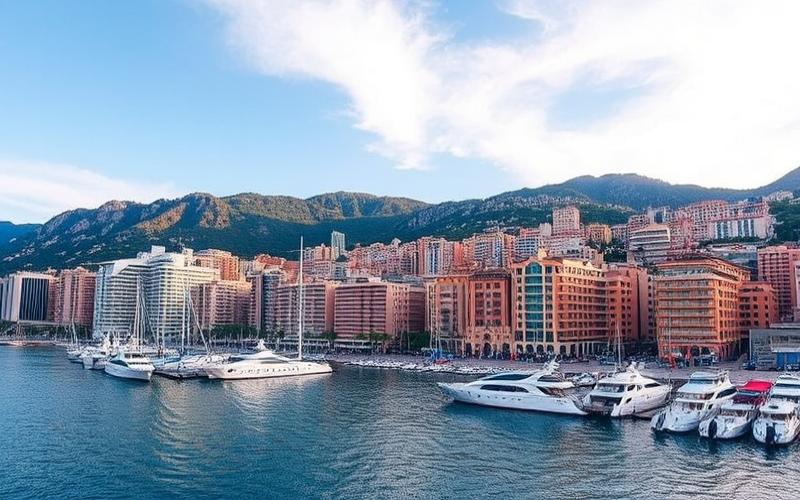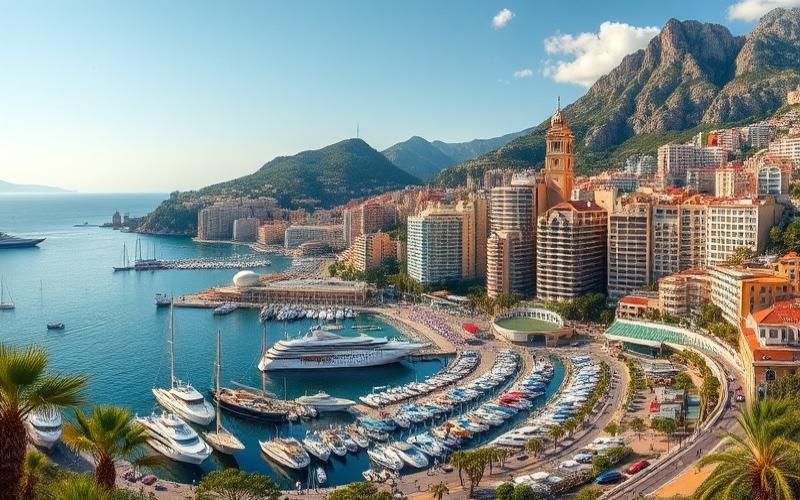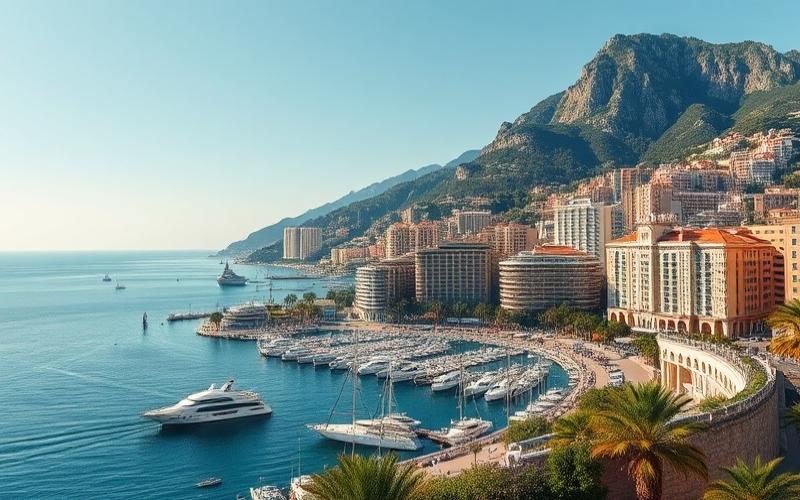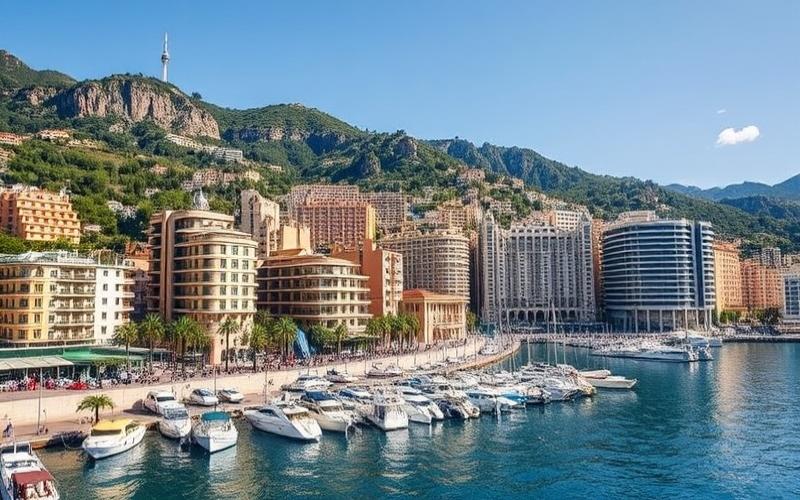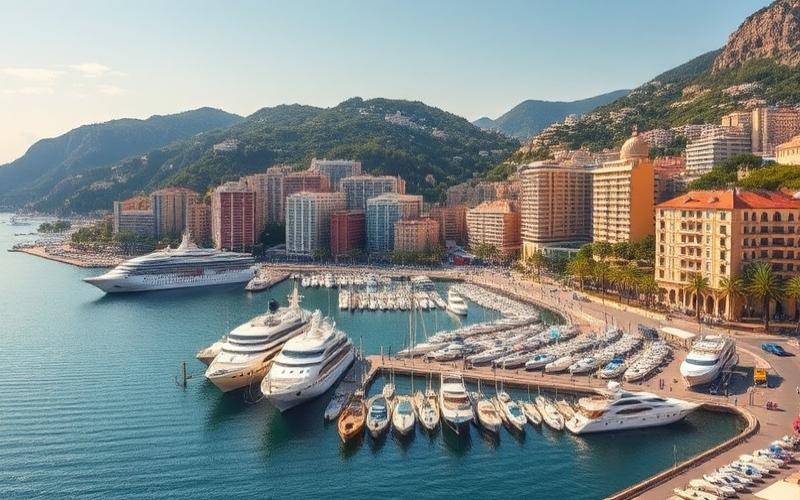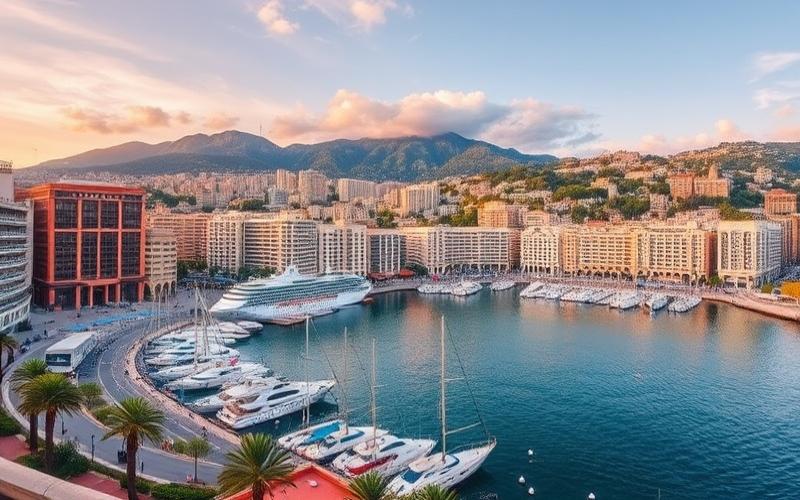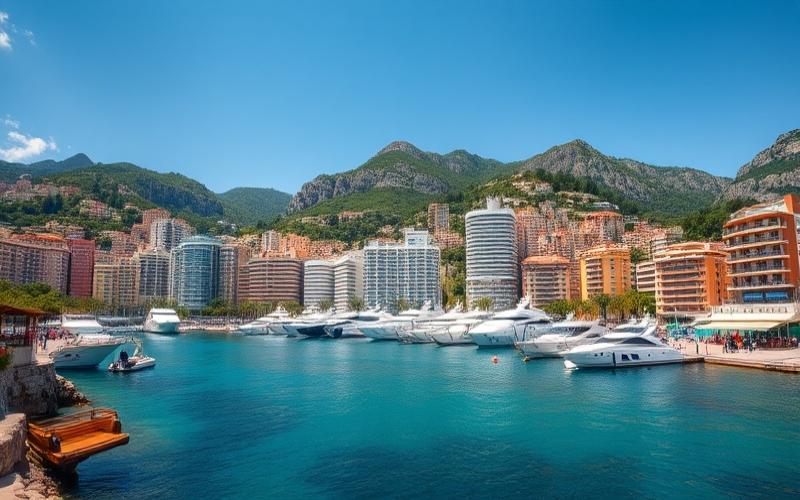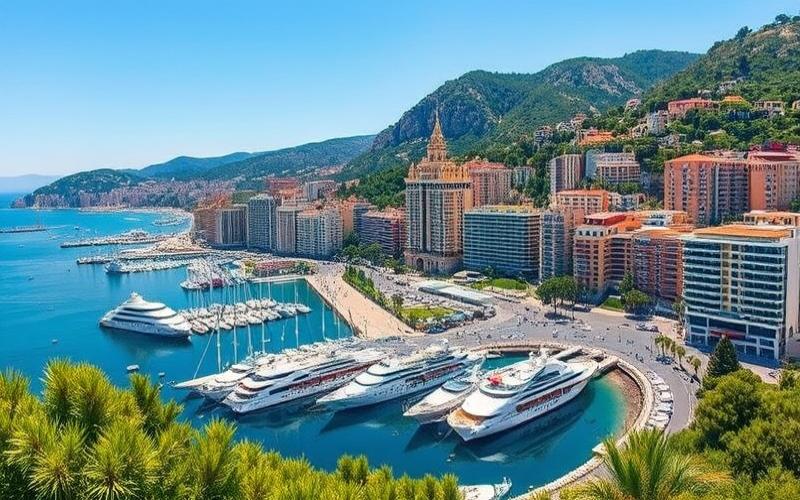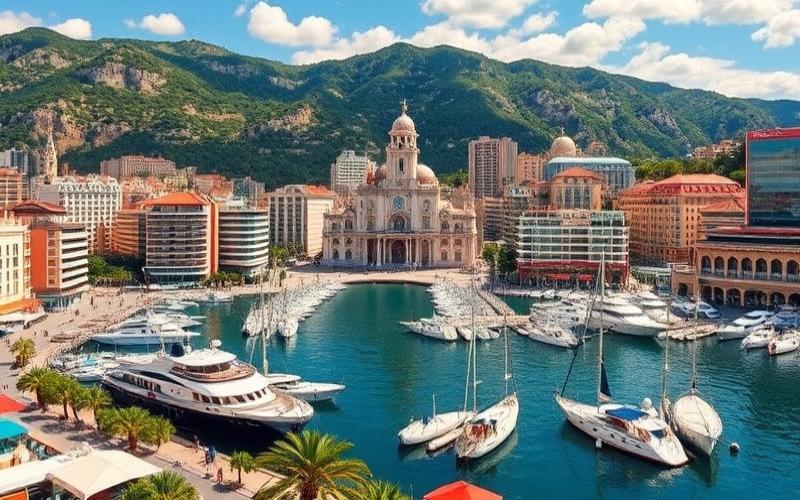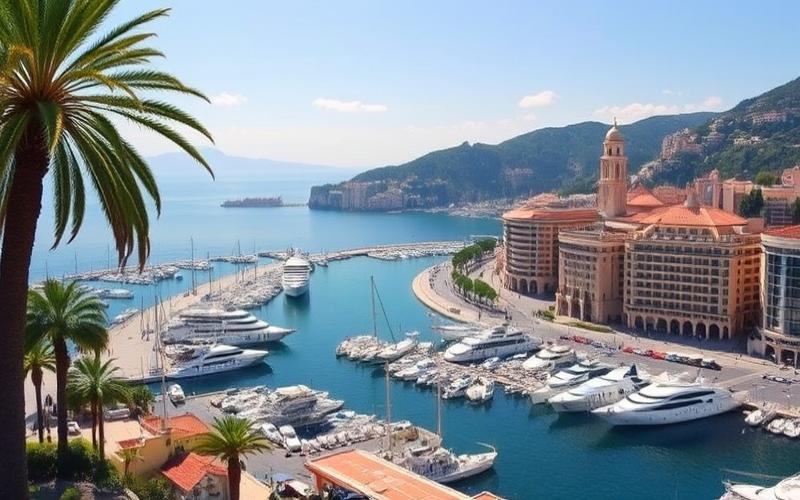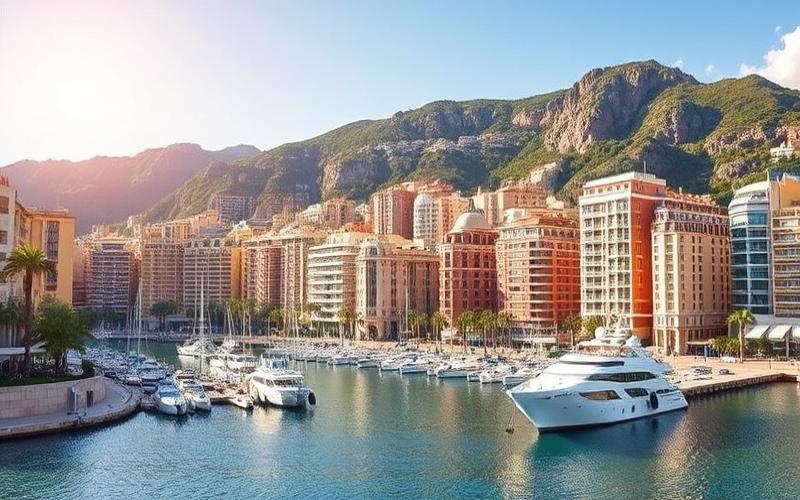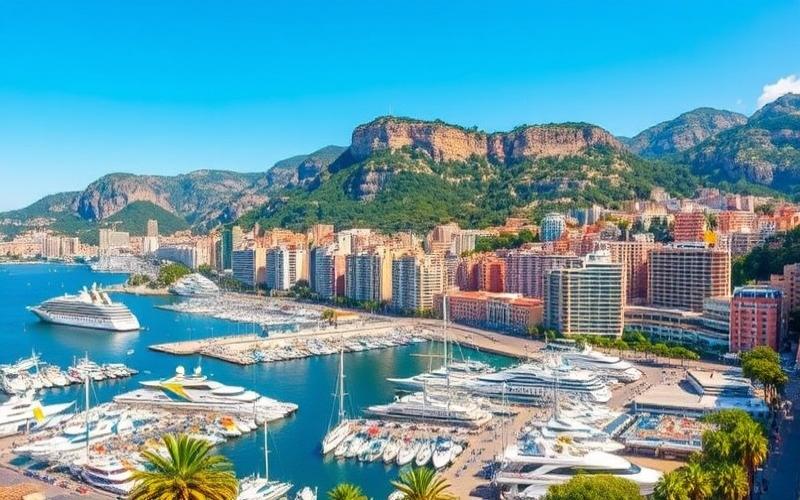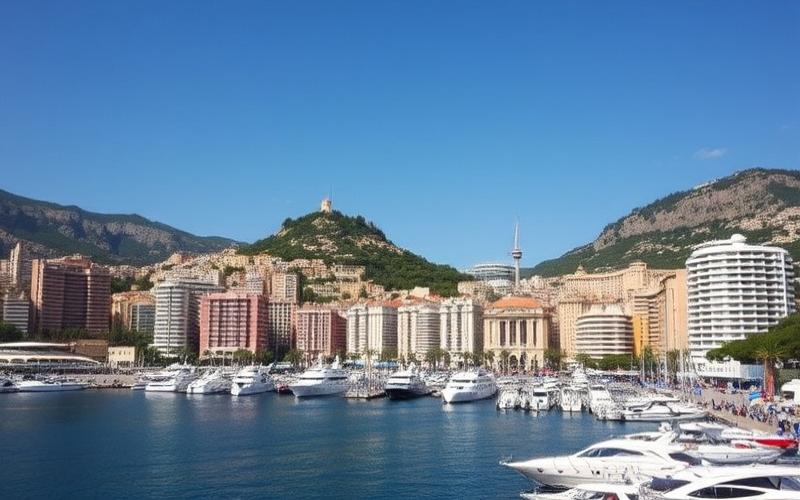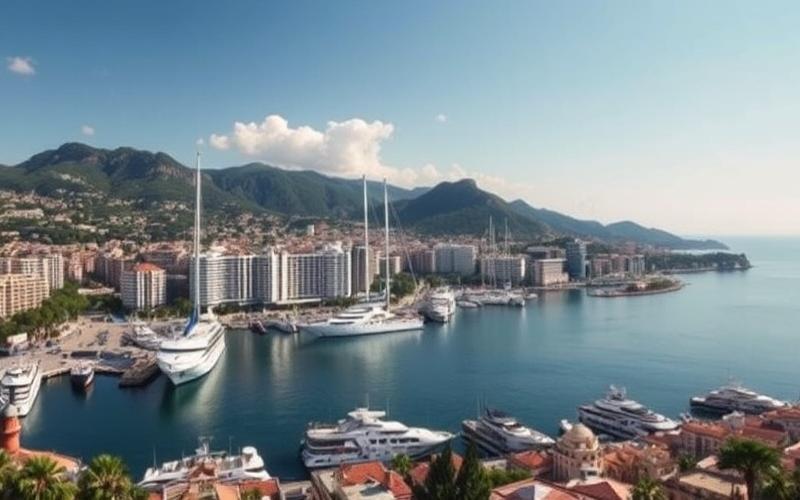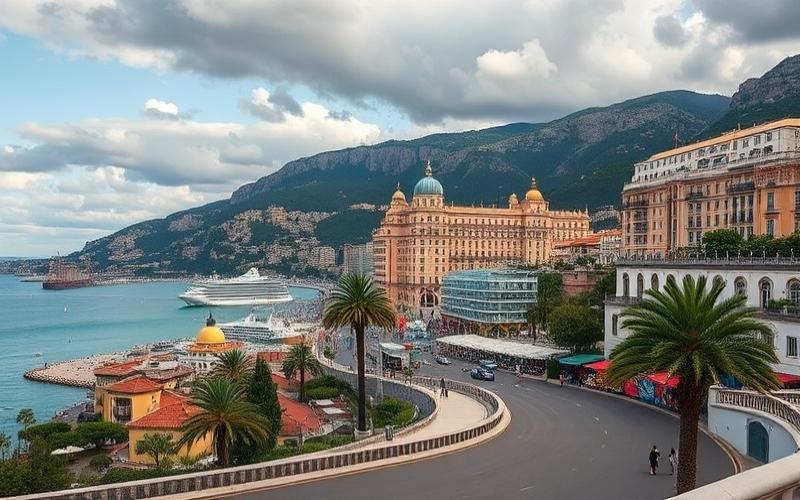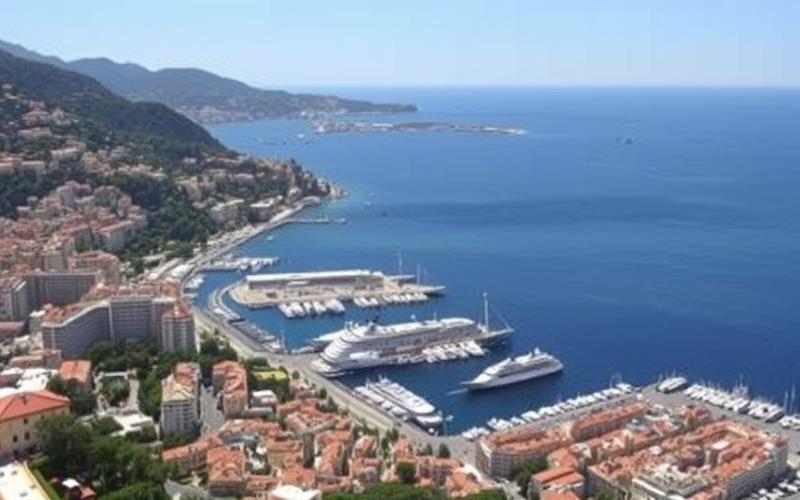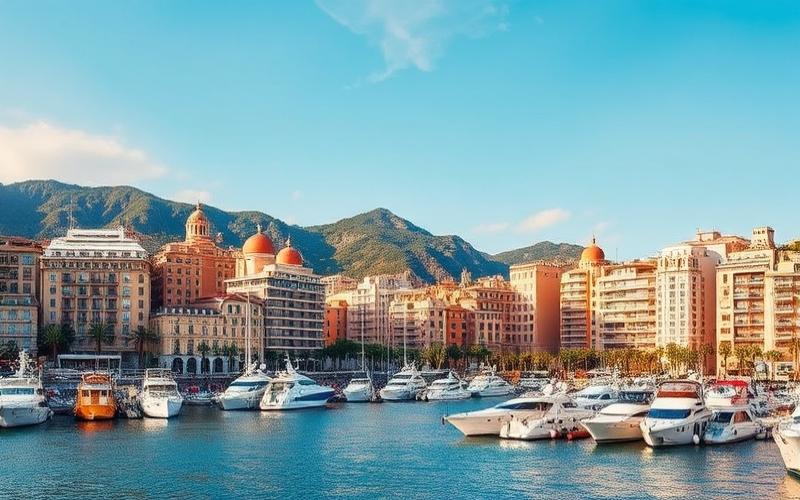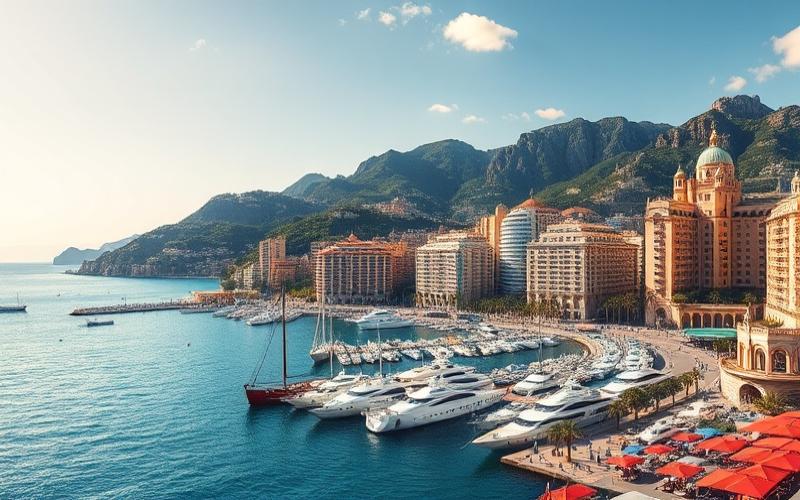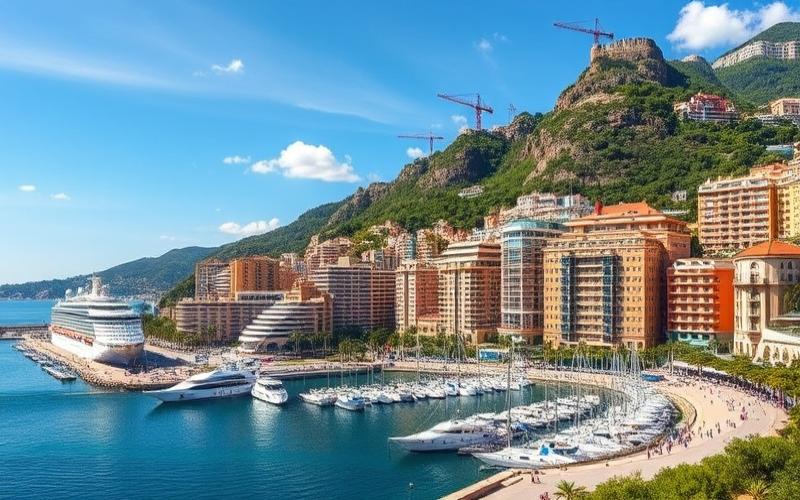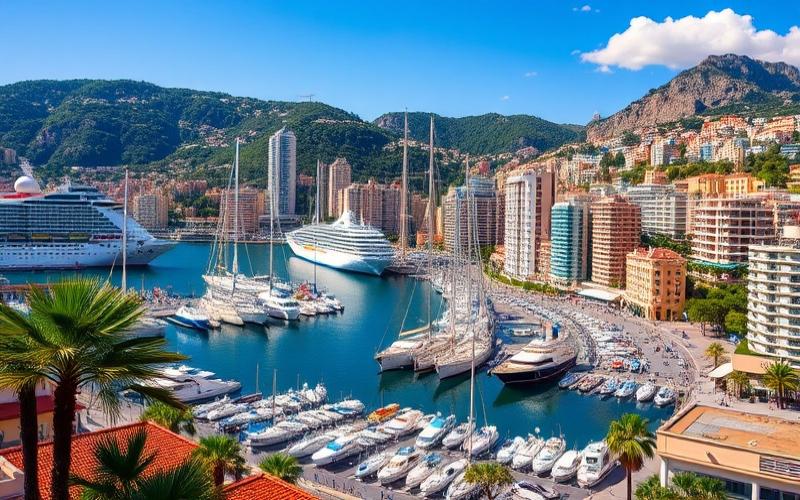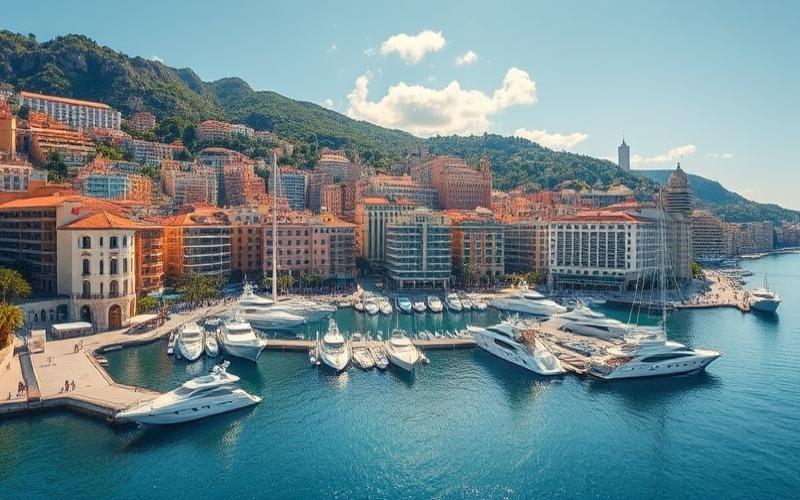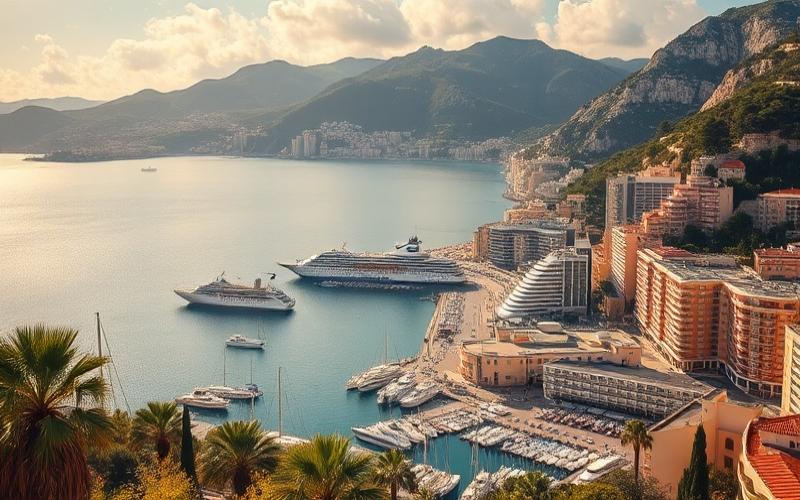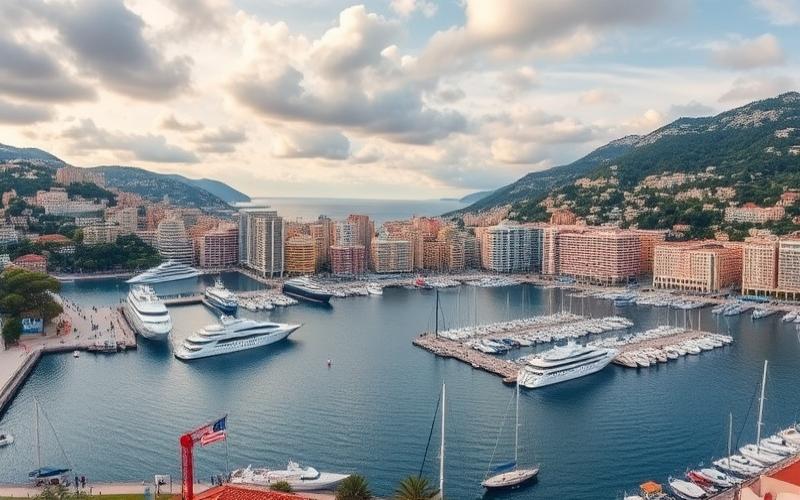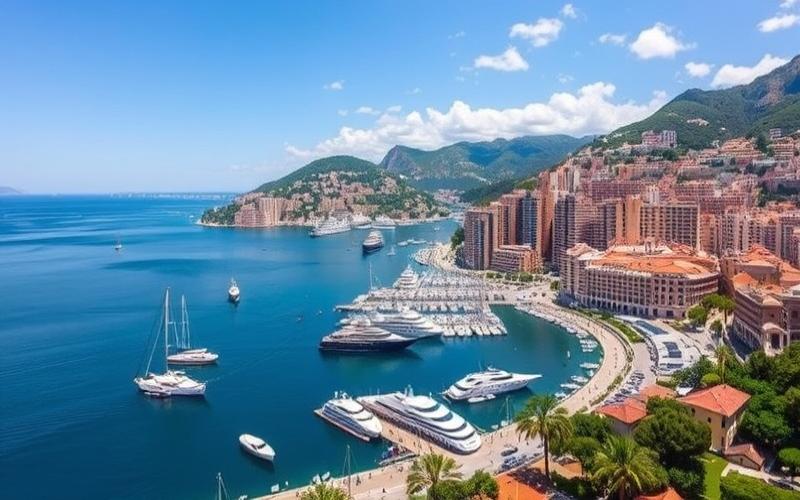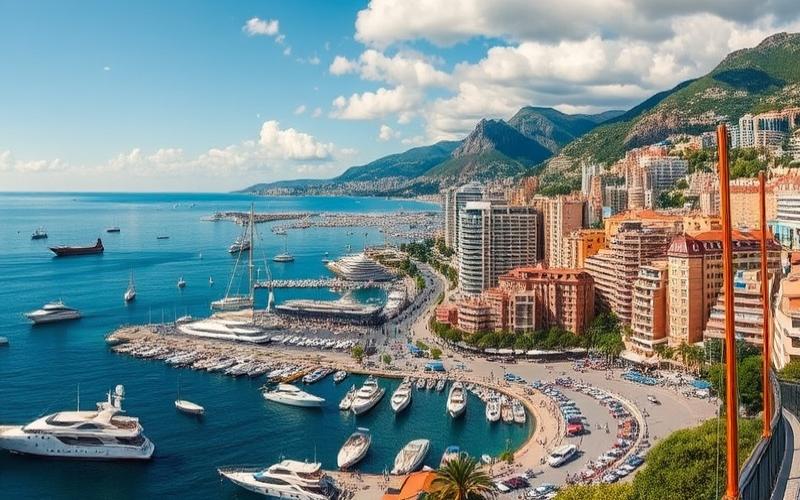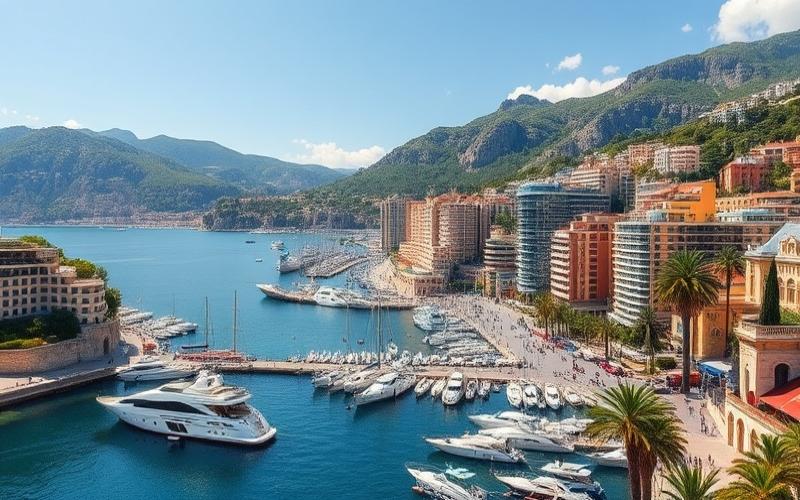
 Published on and written by Cyril Jarnias
Published on and written by Cyril Jarnias
In the Modern World of E-commerce and Secure Transactions
In the modern world where e-commerce and secure transactions dominate, ensuring the legitimacy and security of every purchase is more crucial than ever, especially in exclusive markets like Monaco’s.
Although this small state is renowned for its luxury, it remains exposed to contemporary challenges related to consumer protection and fraud.
To navigate this commercial jungle effectively, it’s essential to understand the essential certifications and security standards to require before validating any purchase.
Ensuring a Peaceful Shopping Experience
This article aims to enlighten readers about these certifications, thereby ensuring a peaceful and protected shopping experience.
Legal Documents to Verify Before a Real Estate Purchase in Monaco
Before any real estate purchase in Monaco, it’s essential to verify several legal documents to ensure the security and compliance of the investment. Here are the main documents to check, their role in the acquisition process, and the competent authorities for their verification:
| Document | Role and Usefulness | Competent Authority / Verification |
|---|---|---|
| Property Title (attestation/certificate) | Certifies that the seller is indeed the legal owner of the property; guarantees the absence of disputes or undeclared mortgages. | Monegasque notary: registration with Tax Services after the sale |
| Sales Contract (preliminary agreement/authentic deed) | Legally formalizes the agreement between buyer and seller; details sale conditions, party obligations, and financial terms. | Mandatory signature before Monegasque notary |
| Compliance Declaration with Regulations | Certifies that the property complies with current standards (urban planning, fire safety…); avoids any risk related to illegal or non-compliant construction. | Provided by an architect or urban planning service |
| Technical Diagnostics Certificate/File | Informs about the general condition of the property (asbestos, lead…); provides legal security against certain hidden defects after sale. | Certified diagnostician; attached to preliminary agreement/final deed |
| Legal Status/Statement – Potential Easements | Lists all constraints attached to the property: right of way, various restrictions… Prevents any surprises limiting future use of the property. | Verification by notary via land registry |
Main Roles of Documents:
- The title ensures clear traceability of real rights to the property.
- The preliminary agreement, signed before a locally sworn notary, firmly commits both seller and buyer from its signature.
- The declaration proves legal compliance; its absence may lead to administrative sanctions or future disputes.
- The diagnostics protect against certain physical risks related to the building.
- The analysis of easements allows elimination of any undesirable future restrictions.
In Monaco:
- All transactions are conducted under strict control of Monegasque notaries – only three official notaries exist in the Principality.
- Official registration is carried out with the Tax Services Directorate which then issues a certificate attesting your ownership.
Specific Points for Foreign Buyers:
- Ensure all payments are made through a recognized local bank or escrow account with an authorized notary.
- Verify if acquisition through a foreign company involves specific higher fees (up to 10% duties + 1.5% notary fees).
- Carefully check required authorizations if purchasing through a legal structure outside Monaco.
Procedures with a recognized agent then with an official notary guarantee transparency and legal protection at every stage.
Increased vigilance on these points drastically reduces any legal or financial risk related to your real estate investment in the Principality.
Good to Know:
Before purchasing real estate in Monaco, it’s crucial to verify several essential legal documents. The property title ensures the seller’s legitimacy by attesting their right to sell the property, while the sales contract or preliminary agreement guarantees transaction conditions between parties. The compliance declaration with construction regulations certifies that the property meets local standards, while the technical diagnostics certificate informs about the building’s condition, from electrical installations to potential natural risks. It’s crucial to examine easements that may restrict property use and authenticate these documents with notaries or Monaco’s Housing Directorate. Foreign buyers should be particularly vigilant about local specifics and take advantage of available services to ensure the validity and completeness of provided information.
Understanding the Urban Planning Certificate in Monaco
An urban planning certificate is an administrative document providing essential information about land buildability and urban planning rules applicable to a plot. When acquiring real estate in Monaco, it’s of paramount importance as it legally secures the project by guaranteeing that regulations in force at the time of certificate issuance will be applied during its validity period. This protects the buyer against subsequent unfavorable changes to local rules.
Main Roles of the Urban Planning Certificate:
- Specify whether land is buildable
- Detail applicable rules (surface area, height, parking…)
- Temporarily fix applicable regulatory framework (18-month validity)
- Secure purchase for buyer and peacefully prepare building permit application
Types of Certificates Available in Monaco:
| Type | Content | Main Usefulness |
|---|---|---|
| Information Certificate | Informs about general rules: urban planning, easements, preemption rights | Know regulatory context without specific project |
| Operational Certificate | In addition to previous information: indicates concrete feasibility of planned project | Verify if particular project can be realized |
The operational certificate therefore provides additional security as it specifies whether the land effectively allows realization of the planned real estate project according to local standards.
Procedure to Request a Certificate in Monaco:
- Complete specific administrative form
- Provide:
- A location plan
- For operational certificate: descriptive notice and detailed land plan with summary indication of future construction
- Submit request to competent service
Usual timeframes:
Processing generally takes several weeks; this timeframe allows Monegasque authorities to precisely study each file.
Information provided by this document:
- Buildability or non-buildability of property
- Specific rules concerning maximum surface area, footprint, authorized height…
- Constraints related to existing networks or roadways
- Potential specific easements or restrictions
For any potential buyer in Monaco, having a valid urban planning certificate provides reassurance about legal and regulatory compliance; it’s also a strong argument during negotiations since it guarantees that no unfavorable regulatory changes can apply during its entire validity period.
Obtaining this document before any real estate acquisition thus avoids bad surprises and fully secures your investment.
Good to Know:
The urban planning certificate in Monaco is a crucial document in real estate acquisition, as it informs about applicable construction rules and project feasibility on a given plot. There are two main types: the information certificate, detailing easements and urban planning standards, and the operational certificate, which additionally assesses viability of a specific project. To request it, one must contact Monaco’s Town Hall providing necessary documents, with processing time generally one month. Obtaining this certificate helps the buyer ensure the property complies with local regulations, thus reducing potential legal and financial risks.
How to Verify Property Title in the Principality
Specific Steps to Verify Property Title in Monaco:
- Selection of a Monegasque Notary
- All real estate transactions must necessarily go through one of Monaco’s three official notaries, appointed by princely decree. Their role is central and their presence is indispensable at every transaction stage.
- Gathering Required Documents
- Valid identity documents of seller and buyer.
- Proof of financing (bank certificate or proof of funds).
- Signed preliminary contract or sales agreement.
- Previous titles, mortgage statement if applicable.
- Client information sheet, possible agreements with real estate agencies.
- Land Registry Searches
- The notary performs all necessary verifications with the Property Titles Service (Public Land Service) to ensure the seller indeed holds legal ownership of the property and that no unrevealed mortgages or charges exist on the property.
- Legal Verification and Certification
“The notary performs legal due diligence such as Land Registry searches… to confirm that the seller is indeed the legal owner of the property.”
- Rigorous control:
- Title authenticity
- Legal capacity of parties
- Mortgage situation
- Regularization of potential charges (co-ownership)
- Rigorous control:
- Signing Authentic Deed Before Notary
Step Description Complete reading The authentic deed drafted in French is read in parties’ presence Signature Both parties sign before notary Payment Complete payment: price + additional fees - Official Registration & Certificate Issuance
- The signed deed is registered with:
- Public Land Service (land registry)
- Tax Services Directorate
- An official certificate (“property attestation/certificate”) is given to buyer as irrefutable proof.
- The signed deed is registered with:
Essential Required Documents:
- Official identity documents
- Financial proof(s)
- Signed preliminary agreement/contract
- Previous land title(s), mortgage statements if applicable
Competent Authorities to Consult:
| Authority | Main Role |
|---|---|
| Official Monegasque Notaries | Legal framework, certification, deed drafting |
| Public Land Service | Land registry/title management |
| Tax Services Directorate | Tax registration & official attestation issuance |
Required Legal Certifications/Verifications:
- Direct verification with public land registry via notary only;
- Official certificate issued after registration;
- Verification of absence of mortgage/urban planning non-compliances;
Practical Tips/Administrative Procedures:
- Always appoint an authorized notary from process initiation;
- Require immediate presentation and certified copy of latest original title;
- Request dated statement on financial situation regarding syndicate/co-ownership before final signature;
- Never pay any deposit directly to seller but only to escrow account held by notary;
- Carefully read each contractual clause, use interpreter if needed;
- Be particularly wary of:
- Unregistered titles,
- Sales under vague conditions,
- Non-accredited intermediaries.
Strict control with exclusive reliance on official Monegasque channels remains essential to secure any real estate purchase in the Principality.
Good to Know:
To verify property title in the Principality of Monaco, start by consulting the Mortgage Office, which holds the official property registry. It’s essential to request a cadastral extract and mortgage statement to ensure no undeclared charges or easements exist. Collaborate with a Monegasque notary, an unavoidable step to verify document authenticity and guarantee the title is free of any hidden defects. Ensure the seller provides a non-opposition certificate issued by the Monegasque government, confirming absence of legal disputes regarding the property. Additionally, be wary of transactions involving non-accredited intermediaries and avoid rushing procedures without exhaustive legal analysis. To prevent future disputes, perform these verifications systematically and don’t hesitate to consult a lawyer specialized in Monegasque real estate law.
Mandatory Real Estate Diagnostics for Secure Purchase in Monaco
Conducting real estate diagnostics in Monaco is an unavoidable step when selling property, aiming to guarantee security, compliance, and transparency of the operation. These legal obligations protect the buyer by providing reliable information about the property’s condition before any definitive commitment.
Mandatory Diagnostics in Monaco
| Diagnostic | Application Conditions | Main Objective |
|---|---|---|
| Energy Performance Diagnostic (DPE) | All residences | Inform about energy consumption and greenhouse gas emissions |
| Electrical Diagnostic | Old electrical installations (+15 years) | Verify safety of electrical installations |
| Gas Diagnostic | Old gas installations (+15 years) | Verify condition and operation of gas installations |
| Lead Diagnostic | Properties built before 1949 | Detect potential presence of lead-based paints |
| Asbestos Diagnostic | Properties built before July 1997 | Locate materials containing asbestos |
| Termite/Wood-eating Insect Diagnostic | According to prefectoral decree (risk areas) | Detect any infestation likely to weaken structure |
- State of Natural, Mining and Technological Risks (ERNMT): Mandatory for all properties located in exposed zones, informs about environmental risks.
- Carrez Law: Precisely measures property’s living area.
- Dry Rot/Wood-decaying Fungi: According to prefectoral decree for certain sectors.
- Non-collective Sanitation: For properties not connected to public network.
Specific Importance of Main Diagnostics
- The DPE allows buyer to estimate future energy expenses and anticipate potential renovation work. It also contributes to ecological efforts by encouraging less energy-consuming real estate.
- Electrical and gas diagnostics are essential to avoid any danger related to defective or obsolete installations, potential sources of serious domestic accidents (fire, explosion).
- Lead diagnostic aims to protect against lead poisoning, serious disease caused by prolonged exposure to lead present in certain old paints.
- Asbestos diagnostic alerts about carcinogenic material massively used in construction until 1997. Its presence sometimes requires specific work to ensure healthy habitat.
- Checks related to termites or other wood-eating insects are crucial as they can cause significant structural damage if their presence isn’t detected quickly.
Monegasque Legislation
Monegasque regulations require these diagnostics be conducted by certified professional before any definitive signature with notary. Absence or erroneous nature of technical file exposes seller to judicial sanctions potentially leading to partial or total sale cancellation.
Furthermore, since January 2022, complementary energy audit is required for certain buildings completed between 1930 and 1990 during their sale or rental. This obligation will be progressively extended to other chronological ranges according to precise schedule defined by princely decree.
These legal provisions ensure each buyer benefits from exhaustive information about their future residence. They strictly regulate real estate commercial practices so each transaction is fairly secured both legally and health-wise.
In summary, these diagnostics constitute as many filters allowing potential buyers to clearly understand what they’re actually acquiring – thus enhancing trust and security in every Monegasque real estate operation.
Good to Know:
In Monaco, purchasing real estate securely relies on mandatory completion of several diagnostics. The energy performance diagnostic (DPE) assesses the residence’s energy efficiency and environmental impact, crucial for anticipating potential future energy costs. Inspection of electrical and gas installations is essential to guarantee compliance with safety standards, minimizing risks of domestic accidents. Detection of lead, asbestos, and termites is also imperative, as these materials can compromise occupants’ health. Additionally, Monaco requires additional checks to assess structural health and safety conditions, ensuring total transparency about property condition and protecting buyer against bad surprises. These diagnostics, well regulated by Monegasque legislation, not only guarantee building compliance and longevity but also strengthen buyer confidence, promoting safe and reliable real estate market.
Disclaimer: The information provided on this website is for informational purposes only and does not constitute financial, legal, or professional advice. We encourage you to consult qualified experts before making any investment, real estate, or expatriation decisions. Although we strive to maintain up-to-date and accurate information, we do not guarantee the completeness, accuracy, or timeliness of the proposed content. As investment and expatriation involve risks, we disclaim any liability for potential losses or damages arising from the use of this site. Your use of this site confirms your acceptance of these terms and your understanding of the associated risks.

